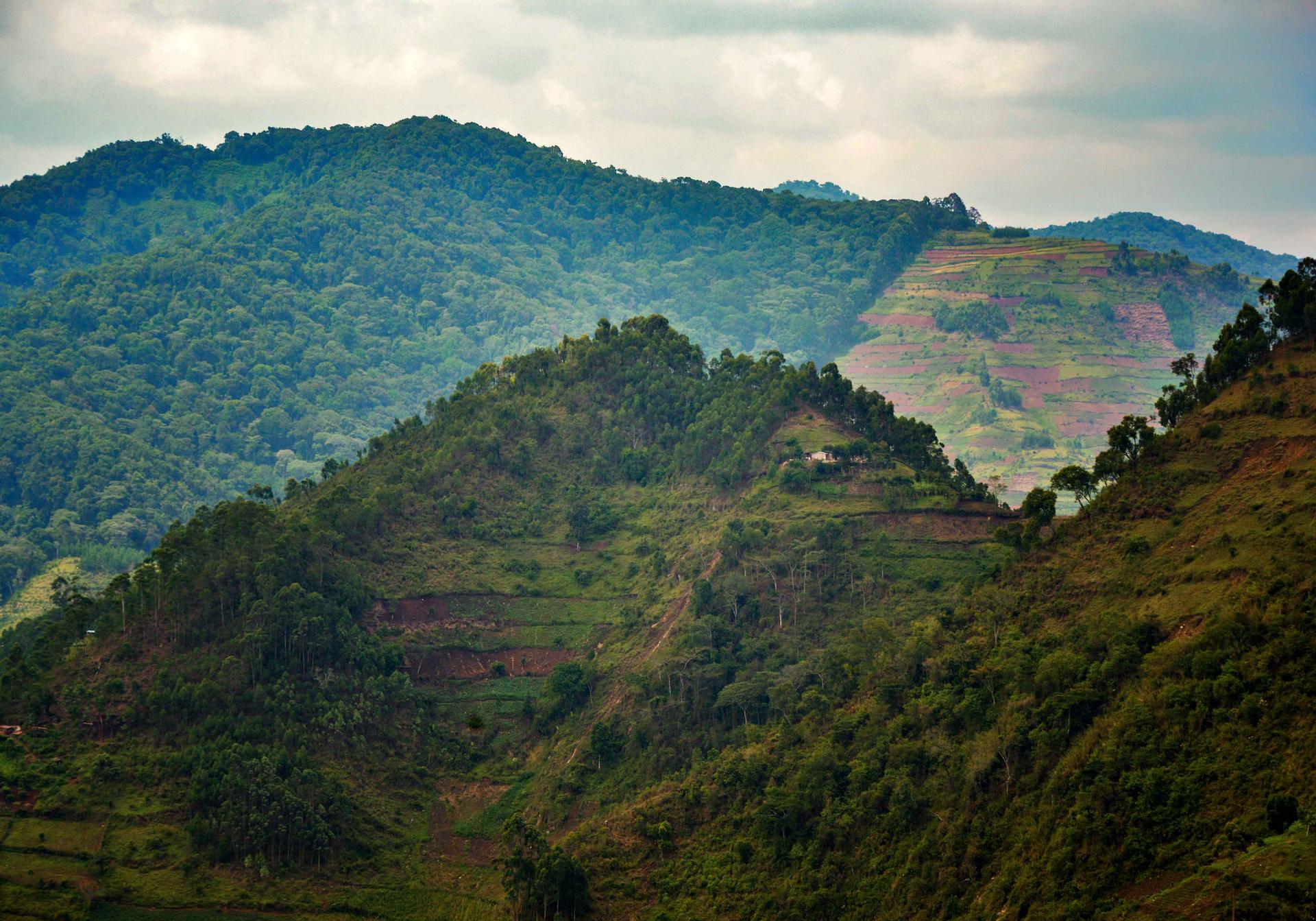Can we pay people to save the rainforests?
Deforestation in the mountains of Uganda.
Earth’s forests are crucial for controlling the rising levels of carbon dioxide in the atmosphere and for maintaining biodiversity, so efforts are underway around the world to stop deforestation. But what happens when those same trees are also crucial to a family’s livelihood?
One solution being tried in countries like Costa Rica and Uganda is to pay landowners not to cut down their trees.
“A lot of the forest is in developing countries and a lot of where the deforestation is happening is by very poor people,” says Dr. Seema Jayachandran, associate professor of economics at Northwestern University and the lead author on a new research paper in the journal Science that explores how well these payments work.
“In Uganda, people are selling some trees to timber dealers or for charcoal just to make ends meet,” Jayachandran explains. “So, if we just ban them from cutting down their trees, we would be making poor people even worse off. The idea of paying them is that we can still get them to conserve, but we can offset the money they’re losing by not being able to sell their trees.”
“So, they’re a little bit better off and we got our conservation goal,” she continues. “It’s a lot of money to them, so we don’t want to deprive them of that money. But when we think about it in global terms, it’s not a lot of money — $50, $100. That could be a lot cheaper than some of our other options for reducing carbon emissions.”
But can these programs have the desired effect?
“One view is that this is a no-brainer,” Jayachandran says. “But there has been some skepticism about this approach, [for] a couple of reasons. One is that maybe a lot of the money…is really [being paid] to people who would have conserved their forests, anyway. For people who are going to conserve anyway, this program looks like a great deal. They’re going to conserve; we’re going to pay them. They didn’t change their behavior — [and] we’re not getting any extra forest cover.”
“The programs are only really making a dent in the problem if they attract people who would have been clearing their forests, but now, because of the reward, they change their behavior and they keep it intact,” Jayachandran explains. “We need to get a lot of [people in] that second category to really make this cost effective.”
A second concern is that some people will enroll and follow the rules of the program, but continue to cut down trees elsewhere, Jayachandran says.
“They’ll conserve the forest on their land, but then they’ll just go and take some trees from the government forest reserve. Or, if you and I were neighbors in a village, I might say, ‘OK, you sign up. I won’t. And then you can come cut your trees on my land and you’ll get the money for complying. And we’ll split that money.’”
Jayachandran’s research showed that this didn’t happen.
“We said, OK, let’s look at what happens on the ground," Jayachandran explains. “So we ran a randomized experiment in Uganda and looked at what happened in the villages with the program and compared [that] with deforestation in the ones without [the program] — and we didn’t see either of those problems.”
“The program was successful in attracting people across the board — some of the people who were going to conserve anyway, but also people who would have been deforesting and now they conserved,” she concludes. “We didn’t see any of that shifting of deforestation to neighboring land.”
This article is based on an interview that aired on PRI’s Science Friday with Ira Flatow.
The story you just read is accessible and free to all because thousands of listeners and readers contribute to our nonprofit newsroom. We go deep to bring you the human-centered international reporting that you know you can trust. To do this work and to do it well, we rely on the support of our listeners. If you appreciated our coverage this year, if there was a story that made you pause or a song that moved you, would you consider making a gift to sustain our work through 2024 and beyond?
